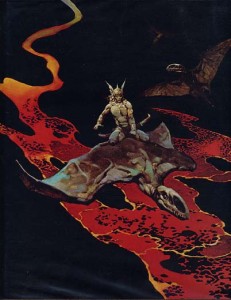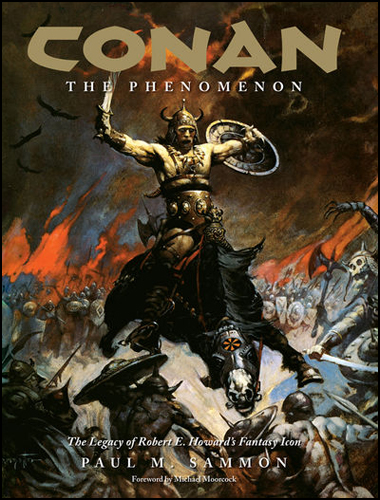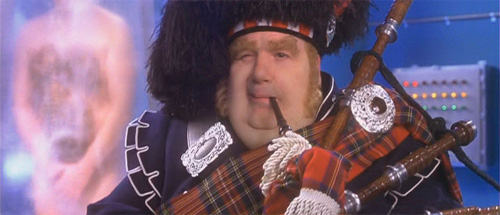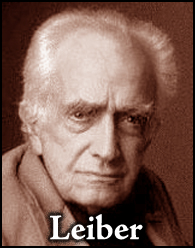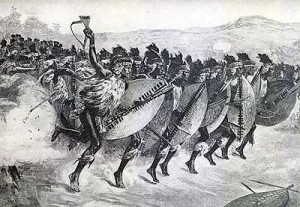
In the latest The Dark Man, Charles Hoffman’s “Elements of Sadomasochism in the Fiction and Poetry of Robert E. Howard” has some interesting comments on “The Hyena“, a very early Howard story written while Howard was still in his teens.
It is interesting to find that he also used this setting with two other tales, “The Slayer“, and “The Wings of the Bat“, both unprinted until The Last of The Trunk. Both tales also involve Ju-Ju men, or witch-doctors, plotting mayhem against the whites. One would conclude that “The Slayer“ is a direct sequel to “The Hyena“, as the narrator refers to having killed Senecoza previously. But we are told by Hoffman that “The Hyena“ was written in 1924, and the editor of Trunk tells us the other stories are “pre-1924”. So either Howard wrote the sequel first, or more likely someone is in error. In a homage to the Alan Quatermain stories, the king of the Zulus in “Bat“ is named Umslopogas. It still amazes me that out of all the material available to him, August Derleth included “Hyena“ in the second Howard collection, The Dark Man and Others.
DEUCE ADDS: A couple years ago, over at conan.com, Patrice Louinet had this to say about “The Slayer”:
REH actually began a sort of sequel to the story, featuring the same hero and mentioning Senecoza. This fragment, tentatively titled “The Slayer” by Glenn Lord, will be included in The Last of the Trunk, the book collecting the immense majority of as-yet-unpublished Howard fiction, forthcoming from the Robert E. Howard Foundation.
“The Wings of the Bat,” to my ear, definitely sounds like it was partially a riff on Sax Rohmer’s Bat-Wing, a book we know REH read. [redacted] blogged about it [redacted].
As for Derleth selecting “The Hyena” for The Dark Man, I’m not particularly surprised, considering Derleth’s blinkered and untrustworthy taste in regards to REH’s fiction. On the other hand, just before The Horror Stories of Robert E. Howard was released, there was a certain REH fan shambling about the blogosphere who practically called Rusty Burke a Howardian anti-christ for leaving “The Hyena” out. He cited Derleth’s unerring judgement for support.

